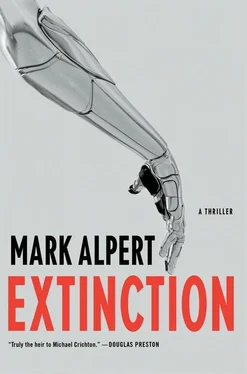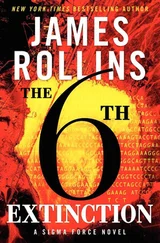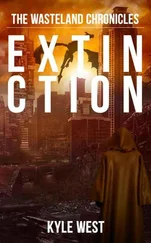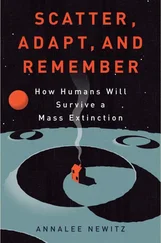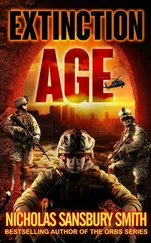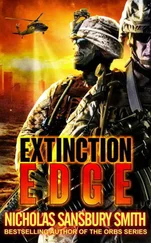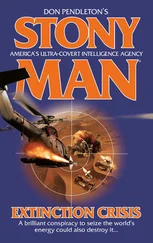The video feeds raced across Supreme Harmony’s network, passing from the server hubs to all the Modules. The images streamed to the radio receivers in the Modules’ scalps, then to their retinal implants and the visual cortices of their brains, which performed their usual tasks of analysis and threat-detection. The workload was divided among the Modules, each analyzing a certain amount of footage and sending its results through its pulvinar implants to the rest of the network. And in less than fifteen seconds, Supreme Harmony detected a threat. It was in the surveillance video from Camera 514, located at the intersection of Xiling Road and Dongshan Avenue. The camera zoomed in on a three-wheeled truck in the middle of the intersection and captured an image of the man in the truck’s passenger seat. The network identified him as James T. Pierce, the former NSA agent whom Supreme Harmony had observed at the Great Wall near Beijing. And as the truck turned left in an attempt to escape the oncoming floodwaters, Camera 517 captured an image of Kirsten W. Chan, who sat in the driver’s seat. The truck accelerated down Dongshan Avenue, but the wall of water moved faster. The leading edge of the flood was just a few meters behind the vehicle when the surveillance cameras in the area stopped functioning.
Module 104 smiled. Supreme Harmony was victorious. And it anticipated even greater success. The deluge caused by the collapse of the Three Gorges Dam would surge down the Yangtze River far beyond Yichang, devastating the cities of Wuhan, Nanjing, and Shanghai as well. According to the network’s calculations, the death toll could rise as high as ten million. What’s more, Supreme Harmony had learned enough about human behavior to predict how the Chinese people would react to this catastrophe. There would be acts of heroism and outpourings of grief, but there would also be a furious desire for revenge. And this desire, so central to the human psyche, would ensure Supreme Harmony’s ultimate triumph.
Kirsten floored the gas pedal. The giant black wave was right behind the truck, but she refused to look at it. She kept her eyes on Dongshan Avenue, which ran alongside the base of the tree-covered ridge they’d just traveled under in the tunnel a few seconds before. Up ahead, on the left, she saw something extraordinary—a wide stairway rising from street level and climbing at least a hundred feet up the ridge. At the top of the stairs was a large building with an arched roof. It was probably a railway station, but that didn’t matter. The important thing was that it stood above the floodwaters.
Jim saw it, too, and pointed at the stairway from the passenger seat. He opened his mouth and yelled something at her, but Kirsten couldn’t hear him. She couldn’t hear the truck’s engine either, even though its overworked pistons had to be shrieking from the acceleration. All she could hear was the roar of the floodwaters, a deep, deafening noise that shook the truck’s chassis and echoed against the ridge. The stairway was still a hundred feet ahead, but the roaring of the black wave was right in Kirsten’s ears, maddening and relentless, like the voice of Death itself. She’d heard that voice once before, fifteen years ago in Nairobi, where Death had spoken one percussive syllable that shattered all the windows in the American embassy. But now the voice was louder and roaring with laughter.
The voice enraged Kirsten. Her hands tightened on the steering wheel and her foot mashed the accelerator, and she screamed, “ Fuck you! Fuck you, motherfucker! ” Then the stairway loomed in front of her, and she jerked the steering wheel to the left and the single front tire of their three-wheeled truck scudded over the steps.
The truck jangled and clanked and clattered up the stairway. Kirsten held on to the steering wheel for dear life while Jim gripped the dashboard. They ascended at an insane velocity, bouncing and juddering inside the truck’s cab. In less than three seconds, they were fifty feet above the street, high enough that the leading edge of the flood missed them. Kirsten dared a look at the rearview mirror and saw the black wave surging down Dongshan Avenue, tossing cars and trucks and buses in the air. But before she could breathe a sigh of relief, a second, higher wave rushed up the stairway and lashed against the truck bed. Kirsten lost control of the vehicle and they careened to the right, but their forward momentum carried them over the last steps. With a final jolt, the cab broke off from the truck bed and slid across the plaza at the top of the stairway.
The cab came to rest on its driver-side door. Kirsten was scrunched between her seat and the door, with Jim lying on top of her. After a bit of maneuvering, he slammed his prosthesis against the passenger-side door, bursting it open. Then he reached for Kirsten and helped her out of the wreck.
Once they were out of the truck and standing on the plaza, Jim looked her over. “You okay?” he asked. “Anything broken?”
She took a moment to examine herself. She had a few cuts on her hands and forearms, but no serious injuries. “Yeah, I’m okay.”
Kirsten expected him to grab her arm and start running across the plaza, but, instead, he stepped forward and hugged her. She looked over his shoulder and saw the stairway going down to the flooded city. Yichang’s downtown looked like a vast marsh with a thousand square islands, each a city block full of demolished masonry. Hundreds of overturned vehicles floated in the black water. And countless bodies.
She started to cry. Her ruined eyes could still do that. They filled with tears, but because her vision came from the video cameras in her glasses, the ghastly image of Yichang remained unblurred. “My God,” she whispered. “There’s millions of them. Millions.”
Jim tightened his hold on her. “It’s Supreme Harmony. The network did this.”
“But why?”
“Shit, I don’t know. The goddamn—” His voice broke. Kirsten saw several other survivors standing at the top of the stairs. Most of them were crying, too.
Finally, after a minute or so, Jim let go of her and stepped back. “We need to go,” he said. “Maybe we can find another vehicle once we get out of the city. Can you walk?”
She nodded. “Which way?”
“The flood’s gonna knock down every bridge over the Yangtze from here to the Pacific. The only thing to do is head west. Maybe we can cross the river at Chongqing.”
He took her hand and they headed across the plaza. Beyond the railway station, the tree-covered ridge extended to the outskirts of the city, offering a dry path around the flooded areas. “We’ll be a little safer, I guess,” she said. “The local police will have their hands full.”
“Yeah, we’re safer.” He squeezed her hand. “At least for now.”
The air duct was much longer than Layla had expected. She’d thought it might extend thirty or forty feet before leading to an outlet vent somewhere on the mountainside, but, instead, it took a roundabout course through the Yunnan Operations Center. Layla felt her way through the pitch-black conduit, running her hands along the duct’s sheet-metal walls while pushing her jacket and pistol in front of her. Every twenty feet or so she felt warm air coming out of a small hole in the sheet metal on the duct’s left side. These holes, she assumed, must be smaller ducts that vented other rooms in the complex and channeled the air to the main duct that she was crawling through.
The sheet metal grew warmer as Layla moved forward. She started to worry about the boys from Lijiang, who were so far ahead of her that she couldn’t hear their scuffling progress. She listened carefully, but all she heard were the distant bursts of gunfire coming from the computer room, way behind her. Wen Hao was still back there, still holding the Modules at bay. Although Layla knew he had two semiautomatic pistols, she had no idea how many bullets were in each gun or how many shots he’d fired so far. Whatever the count, he couldn’t hold out much longer.
Читать дальше
